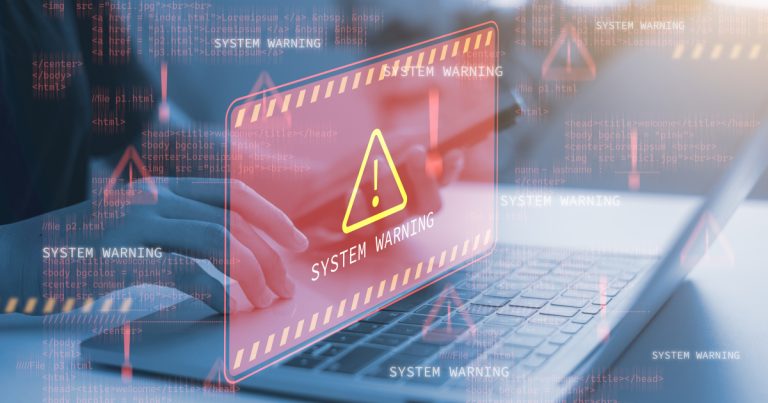
Short-Term Thinking, Long-Term Risk
Addressing Management’s Misguided Security Practices
Many organizations treat cybersecurity as a compliance checklist rather than a proactive defense strategy. This short-term mindset prioritizes passing audits over real security resilience, leaving businesses vulnerable to evolving cyber threats. While security tools like encryption, firewalls, and VPNs were once sufficient, they no longer offer complete protection in today’s complex digital landscape.
Common Causes of Security Failures
1. Outdated Security Thinking and Investment
Many companies remain locked into legacy systems and traditional security models because of prior investments. However, these outdated approaches fail to keep pace with modern cyber threats. Advanced solutions, like vaultless tokenization, provide next-generation data protection without relying on aging security paradigms.
2. Relying on Familiar but Insufficient Tools
Encryption and firewalls are widely understood, making them easier to justify internally. However, these tools do not protect data in active use. Vaultless tokenization renders stolen data useless, eliminating encryption key vulnerabilities and offering superior protection against data breaches.
3. Lack of Awareness About Emerging Threats
Many executives underestimate how rapidly cyber threats evolve. Quantum computing, AI-driven attacks, and Ransomware-as-a-Service (RaaS) introduce new vulnerabilities that traditional security methods cannot address. Vaultless tokenization ensures that even if hackers access systems, they cannot use the stolen data.
4. Compliance-First Mentality Over True Security
Regulations like PCI/DSS, GDPR, CCPA, and HIPAA establish minimum security standards but do not guarantee breach prevention. True cybersecurity goes beyond compliance by proactively securing sensitive data. Vaultless tokenization surpasses compliance mandates by ensuring that stolen data remains indecipherable, reducing breach impact.
Reality Check: Passing an audit does not mean your organization is secure. Compliance checklists often miss hidden vulnerabilities within an organization’s infrastructure.
5. Overreliance on a Few Security Tools
Organizations often rely on a handful of security solutions, creating a false sense of security. Encryption, anti-virus software, and firewalls are important but insufficient alone. A modern security strategy integrates tokenization, AI-driven threat monitoring, and zero-trust policies for a layered defense.
6. Resistance to Security Measures That Affect Efficiency
Security should never compromise business operations, but many organizations resist advanced protections like multi-factor authentication (MFA) and zero-trust frameworks due to fears of slowing workflows. However, vaultless tokenization integrates seamlessly into existing environments, enhancing security without disrupting efficiency.
7. False Confidence in Cyber Insurance and Incident Response
Cyber insurance and incident response teams can mitigate financial losses after a breach, but they do not prevent breaches. Many organizations mistakenly believe insurance will cover all damages, but fines, reputational damage, and lost customer trust often far exceed financial reimbursements.
Shifting to a Modern Security Model
To stay ahead of cyber threats, organizations must move beyond outdated encryption models and compliance-driven security approaches.
How Vaultless Tokenization Strengthens Security
Rixon Technology’s vaultless tokenization replaces sensitive data with non-reversible tokens, ensuring that original data is never exposed. Unlike traditional tokenization, which stores tokens alongside sensitive data, Rixon’s patented keyless ciphering process removes this risk entirely.
Key Benefits of Vaultless Tokenization:
✅ Eliminates Encryption Key Risks – No decryption key means attackers cannot access original data.
✅ Mitigates Insider Threats – Even authorized users cannot misuse tokenized data without explicit detokenization access.
✅ Protects Against Ransomware Attacks – Stolen tokenized data remains useless to attackers.
✅ Simplifies Compliance & Reduces Breach Notification Costs – Many regulations, like GDPR, do not consider tokenized data as a breach.
✅ Supports AI & Secure Analytics – Tokenized data allows organizations to leverage AI-driven insights without exposing sensitive data.
Strategic Security Recommendations
🔹 Adopt Vaultless Tokenization – Traditional encryption is no longer enough. Tokenization secures data during storage, processing, and sharing.
🔹 Implement a Zero-Trust Model – Move beyond perimeter security and enforce continuous verification for all access requests.
🔹 Invest in AI-Driven Threat Monitoring – AI-powered monitoring detects anomalies before breaches occur.
🔹 Use Policy-Based Access Controls – Restrict access to sensitive data based on roles, locations, and time constraints.
🔹 Prioritize Data-Centric Security, Not Just Compliance – Secure data proactively instead of merely passing audits.
Conclusion: Security Must Evolve Beyond Compliance
Relying on outdated security models and compliance-based thinking exposes organizations to modern cyber threats. Companies that fail to implement proactive security measures, like vaultless tokenization, leave sensitive data at risk—even when traditional defenses are in place.
Organizations that prioritize data-centric security will:
✔️ Reduce breach risks and financial losses
✔️ Protect customer trust and brand reputation
✔️ Enable compliance while driving innovation
✔️ Future-proof their security posture against evolving threats
With Rixon Technology’s vaultless tokenization, companies can achieve true data security beyond compliance, ensuring that sensitive information remains protected—even against the most sophisticated cyber threats.
Take Control of Your Data Security Today! Start Your FREE Trial with Rixon Technology now.
